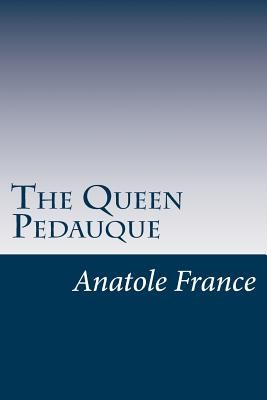
- We will send in 10–14 business days.
- Author: Anatole France
- Publisher: CreateSpace Independent Publishing Platform
- ISBN-10: 1500140945
- ISBN-13: 9781500140946
- Format: 15.2 x 22.9 x 0.6 cm, minkšti viršeliai
- Language: English
- SAVE -10% with code: EXTRA
Reviews
Description
What one first notes about The Queen Pedauque is the fact that in this ironic and subtle book is presented a story which, curiously enough, is remarkable for its entire innocence of subtlety and irony. Abridge the "plot" into a synopsis, and you will find your digest to be what is manifestly the outline of a straightforward, plumed romance by the elder Dumas. Indeed, Dumas would have handled the "strange surprising adventures" of Jacques Tournebroche to a nicety, if only Dumas had ever thought to have his collaborators write this brisk tale, wherein d'Astarac and Tournebroche and Mosaide display, even now, a noticeable something in common with the Balsamo and Gilbert and Althotas of the Memoires d'un Medecin. One foresees, to be sure, that, with the twin-girthed Creole for guide, M. Jerome Coignard would have waddled into immortality not quite as we know him, but with somewhat more of a fraternal resemblance to the Dom Gorenflot of La Dame de Monsoreau; and that the blood of the abbe's death-wound could never have bedewed the book's final pages, in the teeth of Dumas' economic unwillingness ever to despatch any character who was "good for" a sequel.
- Author: Anatole France
- Publisher: CreateSpace Independent Publishing Platform
- ISBN-10: 1500140945
- ISBN-13: 9781500140946
- Format: 15.2 x 22.9 x 0.6 cm, minkšti viršeliai
- Language: English English
What one first notes about The Queen Pedauque is the fact that in this ironic and subtle book is presented a story which, curiously enough, is remarkable for its entire innocence of subtlety and irony. Abridge the "plot" into a synopsis, and you will find your digest to be what is manifestly the outline of a straightforward, plumed romance by the elder Dumas. Indeed, Dumas would have handled the "strange surprising adventures" of Jacques Tournebroche to a nicety, if only Dumas had ever thought to have his collaborators write this brisk tale, wherein d'Astarac and Tournebroche and Mosaide display, even now, a noticeable something in common with the Balsamo and Gilbert and Althotas of the Memoires d'un Medecin. One foresees, to be sure, that, with the twin-girthed Creole for guide, M. Jerome Coignard would have waddled into immortality not quite as we know him, but with somewhat more of a fraternal resemblance to the Dom Gorenflot of La Dame de Monsoreau; and that the blood of the abbe's death-wound could never have bedewed the book's final pages, in the teeth of Dumas' economic unwillingness ever to despatch any character who was "good for" a sequel.


Reviews